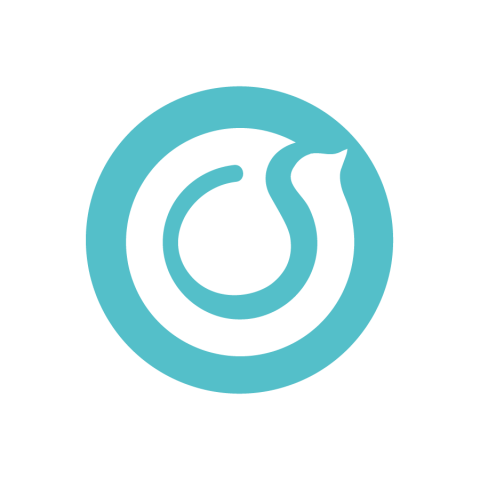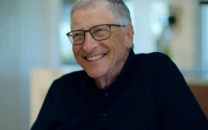"Digitising committees": Women-led startup Oraan shares its success story
Pakistani fintech startup Oraan has made $3 million in seed funding.

Oraan has just made $3 million in seed funding, being the first women entrepreneurs in Pakistan’s Fintech market. Halima Iqbal and Farwah Tapal have worked really hard to fill a gap in the country’s financial services, providing their customers, especially women, a safe space to save and break the taboo surrounding conversations around money.
Founded in 2018, Oraan strives to provide digital savings to people using the ROSCA or committee network, allowing you to save and have access to financial services that banks fail to provide. A vast majority of Pakistanis save through committees and Oraan has digitised the product to provide better access and ease. The fintech company aims to turn their application into a digital bank soon.
The startup made international headlines when they announced their milestone of raising a vast sum of funds in the largest seed funding concluded by a Pakistani women-led company. The funding was co-led by Zayn Capital and Wavemaker Partners, along with Resolution Ventures, i2i Ventures, Hustle Fund, Haitou Global, Plug and Play and others like Claire Diaz-Ortiz.
In an interview with the founders, The Express Tribune got exclusive details about Oraan, it’s story, mission and it’s community.
How does it feel to have achieved such a great milestone?
H: Exciting, Overwhelming, Humbling. It’s been a very humbling journey but super greatful for the partners that we have gotten on board and the team that we’ve built and the customers that have believed in us to really take us forward.
F: I think it’s a bag of mixed emotions, we have worked really hard for the last 3 years and we are on a mission and just realizing that there is a need in the market, that our mission makes sense, that there is validation around this mission and people believe in us, is the biggest thing we felt.
What are some of the struggles you faced to get to where you are now?
H: A startup journey comes with its own struggles and its obstacles, which I unfortunately don’t think is talked about enough in the media or the different stories we cover, and the reason is to build a company you have to really understand the problem in today’s world and come up with solutions.
Even though we come from different backgrounds, Farwa and I take our time to understand problems and let data drive our decisions. As we got deeper into the problem and started realizing the magnitude of the space that we are operating in, the inefficiencies that exist in this space, the obsession kept on increasing. Solving financial inclusion problem in Pakistan - especially for women - came with its own struggles, like finding the product market fit, understanding the customers, and also going out in the field.
There have been questions like why do women need to build that financial product that is gender-inclusive as opposed to gender neutral, but I think we’ve grown a thicker skin in these years and remain undeterred.
F: I think in innovating an idea or starting something new we also had to think about how do we make that happen and where does that pivot to, and that is something we have had to do, pivot our thoughts, pivot how we’re managing things, what we are building and then convincing others that this idea is actually going to work.
Just overcoming other people’s mindset, and having that very strong belief in ourselves was important. But three years is a long time and building a business is not a one or two year thing. It takes perseverance and the support of your family, having employees and people who will believe in you and work with you, are all these challenges that you face as a startup and I think we experienced the same.
Why did you feel the need to fill the gap of digital savings through ROSCA network?
F: It started off as just a simple thought that why is savings to GDP ratio is so low and why women are not financially included. Both were our on our mind when moving back to Pakistan. To both of us the financial system didn't make sense. She couldn’t even open up a bank account. I’ve done my startups here before and raising money and being in the financial world is very tough. We wanted to solve these problems.
So we started with research, and it took a good 8 to 9 months just researching and understanding. Part of that was building up a quantitative research, and just understanding how do people save? And through that we realized committees/ROSCAS are used across Pakistan, across different age, gender, economic backgrounds, from rural to urban, and we were much concentrated in urban and we recognized that on average 41% of our population takes part in it.
Down the lower end of the pyramid its 56%, if you go top it is still 36%. It is more than your banking systems, which means there is something there, what is that? And once we started delving deeper and deeper into that, I was looking into the more informal side, she was looking into the formal side, we started asking how are people then really been managing their money and what’s happening?
People were using committees/ROSCAS to achieve simple goals, short-term goals within 5 months or even within 3 years, a full mortgage basically through committee, because they have put their down payment for their house.
We started seeing that people are using it in different ways, and the more we got into it there was budgeting, shariah compliance, which is a big part since religious sentiments are really important in Pakistan. It’s also something everyone really understands, you don’t have to explain it to your grandmother, you don’t have to explain it to your chacha, your abba anybody, all these people understand in Pakistan.
Everyone has an opinion about your life in Pakistan so for us this just started making sense that this product has an opportunity where there is a gap.
And then we started understanding what the mechanics behind this were, what were the gaps and the actual committee space itself that we could leverage, what was not happening in the traditional offline committee that we could make better?
We saw that the managing system around this is really tough, but more than that people don’t have an access around them. Let's say you need Rs 50,000 in December for your shaadi , your networks won’t have that because you just have access to 15 people really at the end, in your maholla or your family or workplace, and that’s where we started seeing the opportunity.
H: I think it’s really important to understand how people interact with it, what are the different reasons people use it, and how do we bring them online from that, and that’s really how the product came about. It’s also a lot of interrelation and understanding what’s working what’s not working and just being agile enough to go fix that. Take feedback from customers and quickly build it and put it out in the market again. So it’s a constant interrelation and that never stops in a startup, and that’s how the product came about.
Why should people or women in general switch to online committee networks, rather than retaining their traditional system of saving?
H: It’s also about people resonating with us like it’s a relativity factor, whether its myself or Farwa or someone from our team like Maya, being out on the ground and taking time to really speak to the customers and share their problems and even share our own problems as well, it’s a two-way street and you need to build that initial trust.
But I think what the most important part for us was building a community for us of offline minded people, whether there is somebody who is a mother in Lahore with kids, her journey is a lot similar to my journey as a woman in Pakistan when it comes to financial services. So how do your create that space for people to be able to talk about their problems, how do you bridge that taboo around money? if I don’t have enough and I’m always uncomfortable to talk about it , how do you create that space where you take away that uncomfortable aspect of talking about money? That was the most critical part and still is, to creating the sense of community and sense of belonging , irrespective of what your background is, so that’s how the trust built for us. We continue to build the community and get the uncomfortable conversations out to the public as well.
F: I think that’s a big part right from the start, we knew that trust is their backbone and so we made sure we deliver on our promises, we continue to build a community and making it feel like a community. I think keep a customer at the centre whatever you want to solve for, listening to them, having that open conversation, also allows us to build that trust.
Your brand identity is formed around being for women and by women, what steps have you taken to ensure Oraan caters to that?
F: As women we understand our customers, we felt it. Living in Pakistan both of us had overtime felt it. You also feel the social logistical values here and not just the financial bit, going out, going to get something, going to the bank if you don’t have a car is hard. Those are the same things someone in Sargodha goes through, not being able to get out of the house, either because she has a kid at home or she doesn’t have access to go to a maholla, somebody to provide us with money, whoever it may be. We realized that part resonated our problems, because our problems are other women’s problems, it goes back and forth.
H: The gap that exists in financial services is across socioeconomic background, whether it is SSCA or SSCE, it is the same if you are a woman, the power that you have over finances is pretty much the same. And our emphasis is that if you mobilize women financially, you mobilize a household basically. Whether I am earning or not earning, I am a woman as a mother and a wife, manhandling the budget of the entire household. So being able to design for women, understanding limitations, understanding digital and financial literacy and building a product that services her need, so that she is mobilized first and then we mobilize the entire household. This is very important to what we have built and are able to build.
How is Oraan inclusive of encouraging men to save money via ROSCA system, especially since only a small proportion of men in comparison to women?
F: In terms of committees, that is not true because men and women both use to it the same amount. What is interesting about ROSCA is that it is the only financial product in the world that women use more than men, 1.3 times more than men. If you go out in Pakistan or any wholesale electronics shop, there is an entire men’s committee in the works as well. If you’re looking to raise capital for your small business, or any needs, men are taking part in committees as well. If you go into any cooperates, your middle management are all involved in saving through committee. It’s not a gender specific product but what’s interesting is, that it is the only financial product in the world that women use more than men.
H: It is gender inclusive and from our perspective it is gender intentional. We have built it in a way that makes it accessible for both genders. We solve for women first and through that we get the men of the household in as well.
F: We see that as well, one a women starts seeing we deliver on our promise, the husband gets interested as well. So in that way the intra-household comes in together as well, because the woman is satisfied then she will tell everyone about it.
What is next for Oraan? You have said that you aim to turn Oraan into a digital bank, so how are you planning to do so?
H: As we grow and understand the customer better, we look into the financial services that fit well into the lifestyle. Customers and data are dictating a lot of our decisions. Our verdict is that our requirements work in a very similar way to any other person. We want to pay, we want to make deposits, we want to be able to make payments, so for us the question is how do we simplify those experiences and eventually become a full-fledged digital bank.
What is the Oraan community like?
F: We think of it as our family, it’s about building that rapport and understanding no matter where you come from, how can you plug that together and make an open space where people feel empowered to build for you and grow and learn themselves? Growing and learning is very important for Oraan and that is something that we encourage our team members to do themselves and their team as well.
What is the story behind the name Oraan?
H: it means to take flight, and it takes us back to the values that we have, to empower women, because once you have the right kind of tools, the right of kind of education, the right kind of access, you are empowered to take your own flight, to take control of your own finances. And that’s really where ethos comes from and the meaning of the name, Oraan.



















COMMENTS
Comments are moderated and generally will be posted if they are on-topic and not abusive.
For more information, please see our Comments FAQ